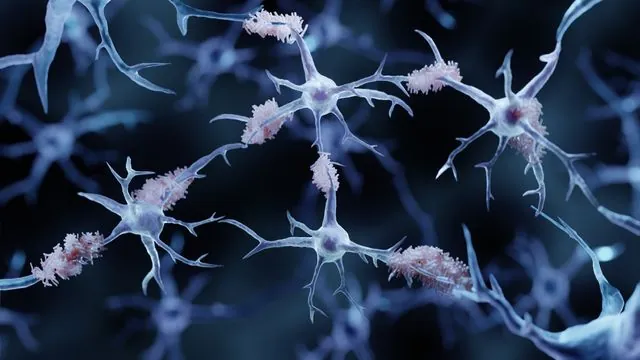
Revolutionizing Alzheimer's Research: Over 200 Proteins Linked to Cognitive Decline Uncovered!
2025-07-14
Author: Jia
The Hidden Battle in Alzheimer’s Research
For years, the Alzheimer's research community has been entrenched in a struggle against the notorious A-beta and tau amyloids—sticky plaques that wreak havoc on neurons and brain function. But a groundbreaking study from Johns Hopkins University reveals that this duo may not be the sole culprits in age-related cognitive decline.
A New Wave of Discovery
In a surprising turn of events, researchers have identified over 200 misfolded proteins in rat models that could be pivotal in understanding cognitive decline. These findings could unlock new therapeutic avenues for the millions of seniors over 65 grappling with Alzheimer’s, dementia, and other memory-impairing conditions.
Stephen Fried, an assistant professor and protein specialist, states, "While amyloids attract attention with their noticeable formations, we’re uncovering a vast landscape of proteins that misfold without clustering into amyloids, yet still significantly affect brain function. Our study is revealing that amyloids might just be the tip of the iceberg!"
Groundbreaking Methodology
Published in Science Advances, the study sheds light on the molecular disparities between older rats exhibiting sharp cognitive abilities and those facing decline. Researchers examined 17 two-year-old rats—seven shown to struggle with memory and problem-solving tasks, while the remaining ten mirrored the performance of much younger, six-month-old rats.
By measuring over 2,500 different proteins in the hippocampus—a brain region vital for memory and spatial learning—the team successfully distinguished misfolded proteins, marking a crucial step in understanding aging.
A Surprising Discovery
Of the proteins investigated, over 200 were misfolded specifically in cognitively impaired rats but retained their correct structure in their cognitively healthy counterparts. This discovery strongly suggests a link between these misfolded proteins and cognitive decline.
Historically, scientists believed that misfolded proteins like A-beta and tau only posed significant threats when clustering into amyloid formations. However, Fried asserts, "There are likely many proteins that misfold without forming amyloids and still create problems, which implies these faulty proteins may evade the cell's natural surveillance and destruction system."
The Mystery Unfolds
Researchers remain confounded by how these misfolded proteins circumvent cellular defenses. The upcoming phase of their research involves examining these proteins under high-resolution microscopes to reveal their molecular deformities.
Fried emphasizes the urgency of this research: "Many individuals have witnessed loved ones struggle with cognitive tasks in their daily lives. By understanding the physical changes occurring in the brain, we can pave the way for improved treatments and preventative strategies for cognitive decline."



 Brasil (PT)
Brasil (PT)
 Canada (EN)
Canada (EN)
 Chile (ES)
Chile (ES)
 Česko (CS)
Česko (CS)
 대한민국 (KO)
대한민국 (KO)
 España (ES)
España (ES)
 France (FR)
France (FR)
 Hong Kong (EN)
Hong Kong (EN)
 Italia (IT)
Italia (IT)
 日本 (JA)
日本 (JA)
 Magyarország (HU)
Magyarország (HU)
 Norge (NO)
Norge (NO)
 Polska (PL)
Polska (PL)
 Schweiz (DE)
Schweiz (DE)
 Singapore (EN)
Singapore (EN)
 Sverige (SV)
Sverige (SV)
 Suomi (FI)
Suomi (FI)
 Türkiye (TR)
Türkiye (TR)
 الإمارات العربية المتحدة (AR)
الإمارات العربية المتحدة (AR)